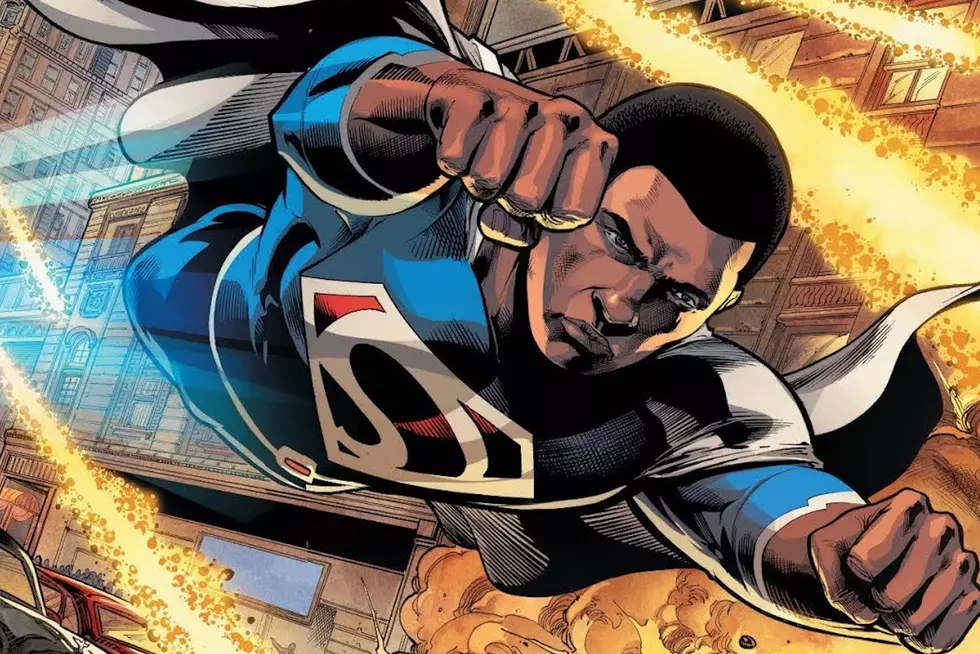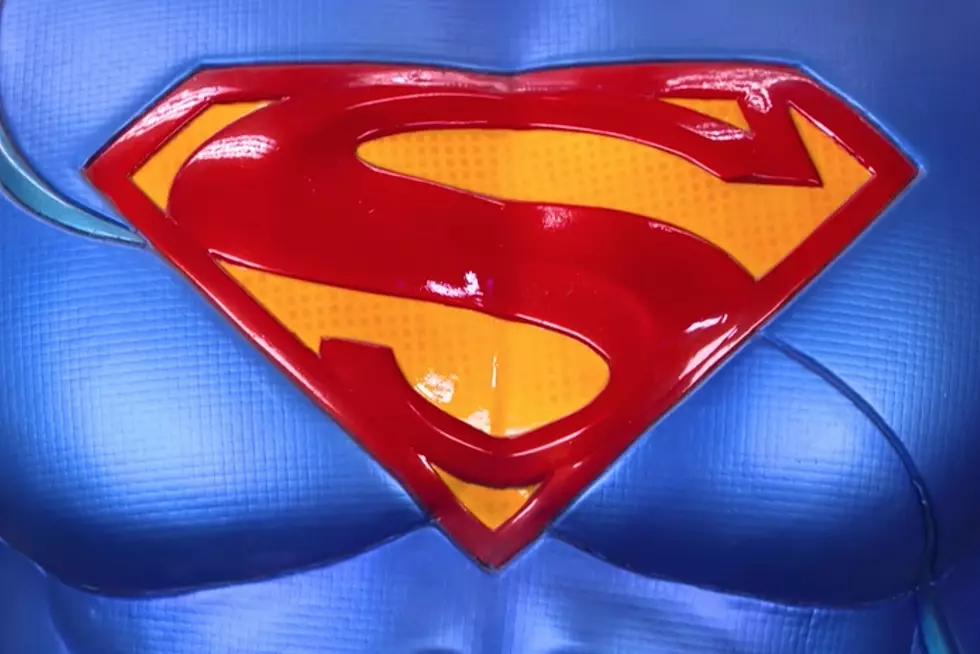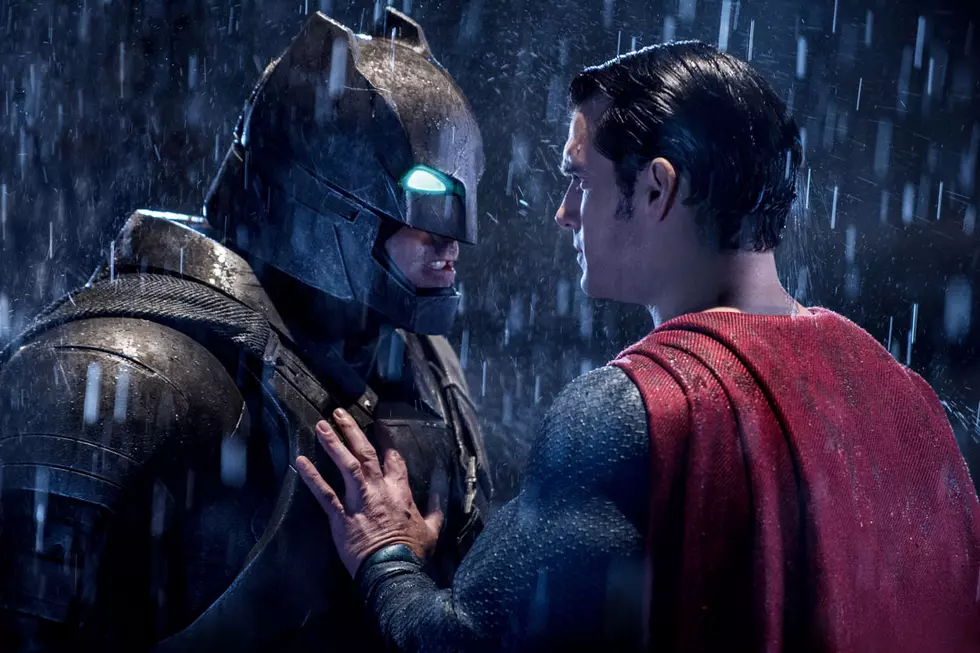
A Superman Super-Fan On Max Landis’ Flawed-Yet-Impressive ‘American Alien’
Max Landis is a divisive figure in modern pop culture, to say the least. The son of acclaimed director John Landis, he burst on the scene as the writer of the found-footage film Chronicle, about three friends who gain immense superpowers and find their friendships tested. He’s also known for his online rants about how Rey from Star Wars is a Mary Sue, or defending the casting of Scarlett Johansson in Ghost of the Shell.
So he’s a man with opinions who likes to share them. He also recently finished up his first miniseries at DC Comics, Superman: American Alien, backed up by an impressive roster of A-list art talent, including Nick Dragotta, Jae Lee and Jock. The series follows Clark Kent at various points in his life from childhood through to his early days as Superman, and takes a more grounded approach to the Man of Steel, but often skims and bounces off the ground a bit too hard.
The following assessment of the series will be unavoidably personal in places, because I am a huge Superman fan, and more often than is usually the case even with iconic superheroes, Superman fans tend to have very rigid ideas of who he is. Max Landis does too; he’s talked about them openly and displays them on the page to see. I’m not necessarily right all the time, neither is he; sometimes our viewpoints line up and sometimes I nearly stopped reading because I vehemently disagreed with what was on the page.
Before I start talking about the Landis’ character work, it should be noted that this book is a pretty incredible achievement for someone’s first miniseries. At times, he shows an understanding of how to structure and pace a comic that belies his relevant inexperience. Alongside some of the greatest artists working in comics today, has produced a flawed but impressive debut work.
The series takes the form of seven one-shots at different points in Superman’s life, from childhood through to his earliest days in the red and blue trunks, and each issue is a slice of life from that time. There is continuity between the series, but it’s largely standalone and better off for it. Not every aspect of Landis’ ground-up DC Universe sticks the landing, but it works a lot better than if it was forced to dance between the raindrops of The New 52’s already incredibly confusing Superman continuity.
My favorite thing about the series --- and occasionally my least favorite, because people are fickle beings --- is how human Landis’ Clark Kent is. I am not a fan of Superman as an alien outsider, and prefer him as a down-to-Earth boy from Kansas, and American Alien has that in spades. Clark Kent just wants to do the right thing here, and while he often doesn’t know what that is, he’s going to try.
However, Landis often leans in too hard into trying to show Superman’s humanity in ways that are unappealing and unnecessary. In one ghastly scene, a young Clark Kent confronts a criminal wanted for murder and accidentally severs both of his arms with a blast of heat vision. Fans of Man of Steel will likely say that such a failure only serves to drive Superman to succeed later in life, but I’d rather have a Superman that does good deeds without having mutilated a criminal.
Clark Kent as a teenager often reminds me of the bratty Billy Batson of The New 52, and just as those stories did, it misses the point. There's a trend in modern superhero storytelling that everything needs to be "real," and "real" is often just a synonym for lousy and cynical, which is a problem that this book suffers from throughout its run. When it soars, it's majestic but it's often dragged down under the weight of its own need to be taken seriously.
One of the true highlights of Superman: American Alien is the portrayal of Superman’s supporting cast, especially Lois Lane, who is every bit as fierce and determined as she should be. Jimmy Olsen’s brief cameo is fun too, as Clark Kent brings his friends from home to a gallery opening of Olsen’s photography work and they just don’t get it. The character Landis nails more than anyone, however, is Lex Luthor.
Lex is immediately introduced as having already accepted there is no-one in the world greater than he, but when Superman shows up, it cuts Lex to his very core. When he gets an up-close interaction and realises that Superman is just a dumb kid winging it, that reinforces Lex’s feeling of superiority and his need to prove to the world that their savior is a fraud. The characterisation does sometimes teeter on a culmination of every “millennials are lazy” article ever published, but ultimately Lex is driven and determined in a way that’s been missing from the main DC Universe.
One of the most interesting choices Landis makes is the use of Lobo in the final issue, which is the only time we see Superman, in his iconic red-and-blues, fighting a super-powered villain. At times it doesn’t work, because instinctively you want Superman v Luthor, Brainiac, Doomsday or Darkseid, but Lobo as an alien visitor to Earth represents everything Superman is not, and highlights the very best qualities of The Man of Tomorrow.
Most of the issues come complete with back-ups featuring Landis collaborating across one or two pages with the likes of Evan “Doc” Shaner, Steve Dillon and Matthew Clark, which don’t always hit --- but they show a great deal of craft. The one page Mr. Mxyzptlk story with Mark Buckingham about the power and threat of ideas is possibly the best thing Landis has written, and if you read one thing from American Alien, that’d be what I recommend.
The art across American Alien is one of the best showcases of what the industry has to offer, and each artist was perfectly chosen to contemplate the specific moments and events of young Superman’s life. Nick Dragotta’s childlike wonder in the first issue is nothing like Jae Lee’s overwhelming moodiness as Clark Kent settles into Metropolis, which is nothing like Francis Manapul’s awe-inspiring take on the city as Superman settles into his role as its protector.
Tommy Lee Edwards draws the gruesome scene I mentioned previously, but he’s also one of the best artists for drawing the isolation of small-town America. Jock’s Lobo is Sam Keith meets Bill Sienkiewicz, Joelle Jones is perfect for the “low-stakes” yacht party issue, and Jonathan Case brings enormous character to Clark and his friends as they argue about how the big city has changed him.
When the project was announced, Landis drew fire for his claim that he wanted American Alien to be “the opposite of All-Star Superman,” widely regarded as one of the best and most true interpretations of the character. It takes either courage or stupidity to invoke such a great work, because your own comic will from then on always be compared to it, and most likely found wanting.
As a series, and especially as a debut series, there is a lot to like here. If you’re a Superman completist interested in a unique take on the character, you could do worse than American Alien. You could do better, but you could do worse.
More From ComicsAlliance









